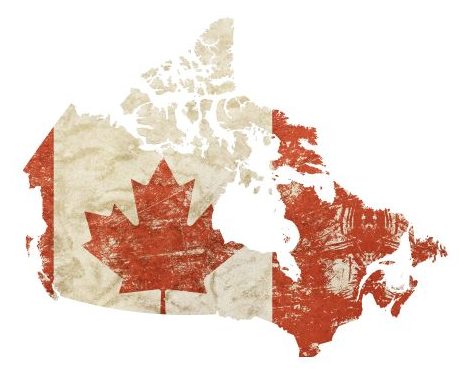GroupNews – April 2022
Eckler’s GroupNews monthly newsletter provides commentary on the issues affecting Canadian group benefit plans.
In this edition:
- Update on biosimilars in British Columbia
- Expanded scope of practice for pharmacists in Ontario
- Nova Scotia announces rebate for fertility treatments and surrogacy-related medical expenses
- British Columbia Bill 19 amends Employment Standards Act regarding sick leave
- Budget round-up: Healthcare and COVID-19 recovery features in federal and various provincial budgets
- Drug trend report examines prescription drug spending for 2021
Benefit plan management
Update on biosimilars in British Columbia
 British Columbia is expanding the use of biosimilars to include three drugs used to prevent and treat blood clots. Effective March 22, 2022, Lovenox will be de-listed from B.C. PharmaCare and will be replaced with biosimilar versions Inclunox, Noromby, and Redesca.
British Columbia is expanding the use of biosimilars to include three drugs used to prevent and treat blood clots. Effective March 22, 2022, Lovenox will be de-listed from B.C. PharmaCare and will be replaced with biosimilar versions Inclunox, Noromby, and Redesca.
Given that treatment with Lovenox is usually short term, PharmaCare coverage will continue for those currently taking the drug. If a renewal of coverage is needed, patients must switch to a biosimilar to continue coverage. Exceptions may be granted on a case-by-case basis.
British Columbia first announced its biosimilar transition program in May 2019. For more information see the June 2019 GroupNews.
Impact: As British Columbia continues to expand the list of biosimilar drugs within PharmaCare the impact on private plans will vary depending on the plan design and biosimilar initiatives supported by their provider.
Benefit plan management
Expanded scope of practice for pharmacists in Ontario
 The government of Ontario has posted draft regulatory changes to give pharmacists the authority to assess and treat minor ailments such as urinary tract infections, eczema, pink eye and muscular strains and sprains.
The government of Ontario has posted draft regulatory changes to give pharmacists the authority to assess and treat minor ailments such as urinary tract infections, eczema, pink eye and muscular strains and sprains.
The proposed amendments were filed on April 4, 2022. Eckler GroupNews will continue to follow these developments.
Impact: The expansion of pharmacy services to treat and assess minor ailments should improve access to care as potential patients will now have the option of visiting a local pharmacy rather than waiting for an appointment with their primary care provider (assuming they have one) or going to a walk-in clinic. Access to more immediate care through a pharmacy may also reduce the number, frequency and length of absences during work hours that is typically associated with scheduled medical appointments.
Benefit plan management
Nova Scotia announces rebate for fertility treatments and surrogacy-related medical expenses
 The government of Nova Scotia has announced a refundable tax credit equal to 40% of the costs of fertility treatments or surrogacy-related medical expenses provided by a Nova Scotia-licensed medical practitioner or infertility treatment clinic. The announcement marks the first time a province in Canada has introduced support of this kind for residents.
The government of Nova Scotia has announced a refundable tax credit equal to 40% of the costs of fertility treatments or surrogacy-related medical expenses provided by a Nova Scotia-licensed medical practitioner or infertility treatment clinic. The announcement marks the first time a province in Canada has introduced support of this kind for residents.
The Nova Scotia Fertility and Surrogacy Rebate was first proposed in the 2022–2023 provincial budget. The rebate will allow eligible Nova Scotians to claim costs up to $20,000 annually, which will result in a maximum annual tax credit of $8,000. There is no limit on the number of treatments an individual can claim. If the medically needed services are not offered in Nova Scotia, a licensed practitioner in Nova Scotia can refer a patient elsewhere.
Impact: Individuals struggling with infertility issues can experience a significant negative impact on their mental health and work productivity. The significant costs for fertility treatments make it unlikely that many private plans would provide complete coverage so the tax rebate will provide some relief for plan members who incur these costs.
Legal and legislative news
British Columbia Bill 19 amends Employment Standards Act regarding sick leave
On March 28, 2022, the government of British Columbia introduced Bill 19–2022, Employment Standards Amendment Act, 2022 (Bill 19) to address issues raised after recent amendments to the Employment Standards Act (ESA). Beginning January 1, 2022, employees in British Columbia are eligible to take a minimum of five paid sick days and three unpaid sick days per year. The changes apply to all workers covered under the ESA, including part-time workers.
Bill 19 addresses concerns raised over the definition of a “year” under the legislation. Currently, the ESA entitles an eligible employee to eight personal illness or injury leave days in each “employment year.” If passed, Bill 19 would amend the ESA so that an employee’s entitlement to sick leave days would be in each “calendar year.” Bill 19 also makes the paid sick leave requirements the minimum requirement for employees covered by a collective agreement, even if the current collective agreement contains provisions that, when considered together, meet or exceed those requirements.
Impact: Bill 19 is expected to come into force upon Royal Assent. Confirming that the sick leave entitlement is for a calendar year provides further clarity for employers and employees in the province.
Legal and legislative news
Budget round-up: Healthcare and COVID-19 recovery features in federal and various provincial budgets
 Federal
Federal
The 2022 Federal Budget (Budget), “A Plan to Grow Our Economy and Make Life More Affordable,” was tabled on April 7, 2022. Measures of interest include a proposed national dental care strategy, changes to paid sick leave and the Employment Insurance (EI) sickness benefit, continued progress toward a universal national pharmacare program, and investments to address surgery backlogs and the long-term impacts of COVID-19.
National dental care
Budget 2022 provides funding of $5.3 billion over five years, starting in 2022–23, and $1.7 billion ongoing, to Health Canada to provide dental care for Canadian families with an annual income of less than $90,000. The program will provide dental care for Canadians under 12 years of age starting this year, and will expand to Canadians under 18 years, seniors, and persons living with a disability in 2023. The program is expected to be fully implemented by 2025. There will be no co-pays for Canadian families with annual incomes under $70,000.
Progress toward national pharmacare
The Budget promises further progress toward a national pharmacare program. The government intends to table a Canada Pharmacare bill by the end of 2023 and will task the Canadian Drug Agency to develop a national formulary of essential medicines and bulk purchasing plan to support the implementation of the bill.
Paid sick leave and sickness benefits
Budget 2022 confirms two key ongoing actions that will legislate a minimum of 10 days of paid sick leave for federally regulated workers, and increase the length of EI sickness benefits from 15 to 26 weeks by the summer of 2022.
Other measures of interest include:
- A proposal to allow medical expenses related to surrogacy or in-vitro fertilization under the Medical Expense Tax Credit. This would include fees paid to Canadian fertility clinics and donor banks for donor sperm and ova.
- An additional $2 billion top-up payment to the Canada Health Transfer to address backlogs in surgeries and other procedures.
- Engagement with provinces and territories to inform the development of a new Canada Mental Health Transfer that will support the expansion and delivery of high quality and accessible mental health services across Canada.
- $20 million over five years, starting in 2022-23, for the Canadian Institutes of Health Research to support additional research on the long-term effects of COVID-19 infections on Canadians, as well as the wider impacts of COVID-19 on health and healthcare systems.
New Brunswick
The government of New Brunswick released their 2022 Budget, “Building on Success,” on March 22, 2022. The budget includes several measures to help residents with the continuing pressures brought on by the COVID-19 pandemic and strains to the health care system. Measures of interest include:
- $38 million toward “Stabilizing Health Care: An Urgent Call to Action,” which outlines a path forward to stabilize and rebuild New Brunswick’s healthcare system to be more citizen-focused, accessible, accountable, inclusive and service-oriented through the following categories:
- Access to primary healthcare;
- Access to surgery;
- Creating a connected system;
- Access to addiction and mental health services; and
- Support for seniors to age in place.
- $3.7 million to enhance and redirect resources towards multi-disciplinary, team-based community care.
- $1.9 million to expand mental health crisis care response services, bringing the budget for addiction services and mental health to $174 million.
Nova Scotia
The Nova Scotia Budget 2022–23, Solutions for Healthcare, Solutions for Nova Scotians was delivered on March 29, 2022. This budget allocates $5.7 billion to healthcare, an increase of $413.4 million from last year and includes $2.1 million to address surgery backlogs due to COVID. Measures of interest include:
- $3.4 million more to expand mental health virtual care and includes enhancing virtual care services at emergency departments
- $464,000 more to support the provincial Opioid Action Plan
- $14.5 million more to make virtual care available to everyone through the Need a Family Practice Registry
- $10.4 million more for medications for pharmacare programs
- $3.6 million more for cancer medication
- $67.4 million to enhance presumptive cancer coverage for 13 additional cancers and heart attack coverage for firefighters
- Tax credit equal to 40% of fertility treatments provided by a Nova Scotia licensed medical practitioner or infertility treatment clinic
Quebec
The government of Quebec released the 2022 Budget on March 22, 2022. The government is committed to acting based on four foundations of the health and social services system:
- human resources, in public health care and services;
- access to data, to improve performance and the way services are organized;
- information technology, including tools to help health professionals and managers improve services; and
- infrastructure, which will be modernized through new buildings or hospital renovations.
Budget measures designed to restore the health and social services system include:
- $3.4 billion to improve the management and delivery of work by healthcare staff
- $1.0 billion to provide more integrated, patient‑focused services within health care facilities
- $789 million to modernize the health care system
- $22.8 billion in investments for the health and social services sector
- $545.9 million to improve the accessibility and quality of health and social services
- $508.5 million to improve services for vulnerable persons
- $546 million to improve accessibility to services, including deploying clinics for “complex diseases” and $20.5 million to establish 15 long COVID-19 clinics
Saskatchewan
The government of Saskatchewan released their 2022–23 Budget: Back on Track on March 23, 2022. Similar to the other provincial budgets this year, this budget puts heavy emphasis on healthcare spending, including:
- $16-million increase for the Saskatchewan Prescription Drug Plan for high-cost drugs, treatment changes and increased medication use
- A new independent agency dedicated to recruiting and retaining health care workers
- $3.5-million increase for physician recruitment and retention initiatives
- $4.8-million increase for cancer drugs and other therapies
- $470-million will be invested in mental health or 7.3% of the total Ministry of Health budget, with $403 million directed to mental health and $67 million to addictions
Manitoba
The Manitoba Budget 2022 was delivered on April 12, 2022. The budget focuses on economic recovery and healthcare. Healthcare highlights include:
- $110 million to address diagnostic and surgical backlogs caused by the pandemic
- Over $11 million to increase nursing enrolment in Manitoba’s post-secondary institutions
- $812 million in continued capital commitment for rural and northern health care under the five-year Clinical and Preventative Services Plan
- $630 million dedicated to contingencies and COVID-19 response and recovery
- Expansion of Cochlear Implant Processor Upgrade Coverage. This initiative provides 80% coverage of the cost of cochlear implants processor replacements for all adults; previously, coverage was only limited to replacements for children.
- Additional funding for Manitoba Pharmacare. No additional details were given in the budget.
Impact: Jurisdictions across Canada continue to emphasize the need to address the ongoing strain on healthcare resources brought on by the COVID-19 pandemic. While most of the work to enhance healthcare systems does not directly impact private plans, increasing funding for mental health initiatives, adding additional healthcare workers, and reducing surgical wait times will be welcome news for plan members and plan sponsors across the country. This will help alleviate the rise in plan costs associated with increased and prolonged disability claims and other benefits-related costs as a result of mental health impacts, delayed surgeries and long COVID. The impact of the federal government’s proposed national dental care program on private plans currently offering dental benefits will be clearer when implementation details of the program are announced, and will depend on whether eligibility under the national plan will be limited to those without access to private benefits and the extent of the coverage provided.
Research
Drug trend report examines prescription drug spending for 2021
 Express Scripts Canada’s annual Drug Trend Report provides an analysis of prescription drug trends for privately sponsored Canadian benefit plans in 2021.
Express Scripts Canada’s annual Drug Trend Report provides an analysis of prescription drug trends for privately sponsored Canadian benefit plans in 2021.
Key findings:
- The cost of private drug plan spending per member increased by 4.3%. This is down from the 5.4% increase in per member drug spending in 2020. While there were fewer plan members submitting claims, the cost per claimant rose mainly due to the cost of specialty drugs, which represents 29% of all drug spending but by less than 1% of claimants.
- Spending on traditional drugs increased by 3.7% per member in 2021, attributed in part to a 4.3% boost in spending per claimant mainly driven by the expanded use of flash glucose monitoring supplies – a more expensive option for managing diabetes than traditional test methods such as finger pricks and testing strips. The jump was also due to a 12% increase in spending on migraine treatments, resulting from growth of 4.8% in the number of claimants and a 6.8% rise in spending per claimant.
- Specialty drugs continue to be a major cost concern for private plan sponsors with a 6.8% per member spending increase on specialty drugs in 2021. The primary driver was a 0.1% increase in plan members making specialty drug claims. The trend was driven by increases of 8.3% in claimants for treatments of inflammatory conditions and 4.8% in claimants for drugs used to treat multiple sclerosis. While the number of claimants for cancer treatments grew 5.4% in 2021, overall spending decreased by 18.7%.
- An increase in the number of claimants for several therapeutic classes led to increased spending in 2021 with the top three therapeutic classes — inflammatory conditions, diabetes and depression —experiencing growth of 17.8%.
Impact: Private benefit plans continue to face cost pressure on drug plans which is largely driven by continued use of specialty drugs and an aging population with increasing utilization. Plan sponsors should review all aspects of their drug plans on a regular basis to ensure they are provided to their members in a sustainable manner.
This publication has been prepared by the GroupNews editorial board for general information and does not constitute professional advice. The information contained herein is based on currently available sources and analysis. The data used may be from third-party sources that Eckler has not independently verified, validated, or audited. They make no representations or warranties with respect to the accuracy of the information, nor whether it is suitable for the purposes to which it is put by users. The information is not intended to be taken as advice with respect to any individual situation and cannot be relied upon as such.
Current editorial board members are: Ellen Whelan, Charlene Milton, Philippe Laplante, and Nick Gubbay.